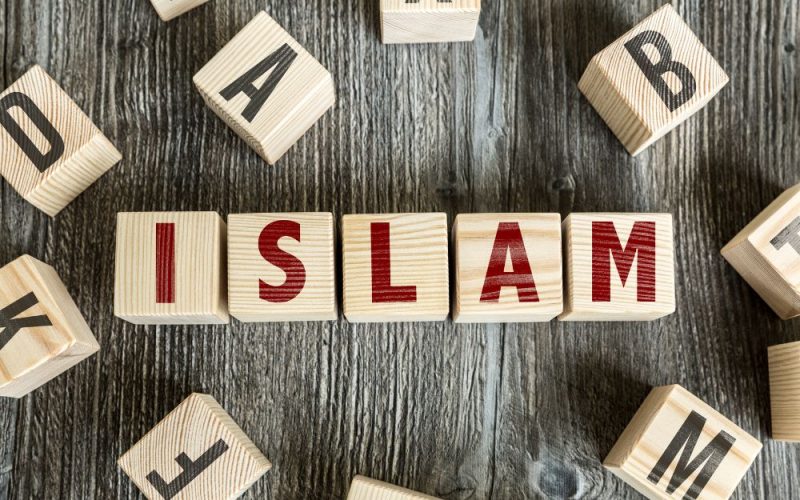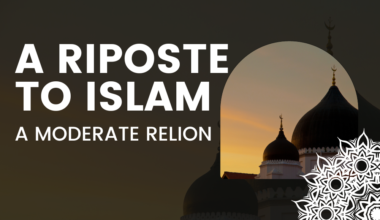PREAMBLE
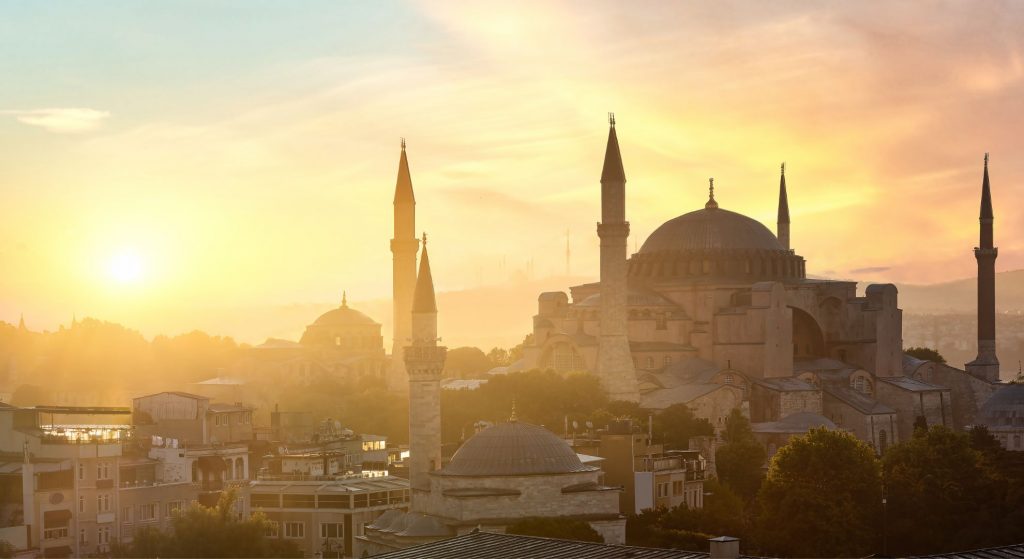
In talking to my friends of various backgrounds I often get the impression that Islam is a widely misunderstood religion even when looked at in dissociation with present day’s political context. In fact, the fundamentalism manifested by many of the Muslim groups has meant that Islam is quite often poorly received.
Confronted with such negative perception, the ordinary Muslims often tend to become bitter, which only compounds the problem. Even though, perhaps unsurprisingly in the present context, Islam is often singled out for special scrutiny, all religions at one time or another have been used or are used as instruments of prejudice, hatred, and violence. It is true that, in the Muslim world, the impotence of those having the responsibility to defend the cause of their people has pushed forth on the scene the combatants of all types. For the past few decades in particular, some fundamentalist movements have begun manifesting radical philosophies in complete disharmony with true Islam. Thus, the world often confuses between Islam and Islamism. In fact the present day Muslim societies are no more helpful in understanding Islam than a study of the medieval Christian society would be to understand Christianity. The God of Islam would seem apart from the one of Old Testament or the one of Evangelists. A cruel God for the barbaric societies.
To put things in perspective it only makes sense that people, like this writer, who also respect the western culture, should try and explain the authentic Islam, several centuries prior to the present decadence of the Muslim world.
ISLAM AND REASON

Islam is a religion that repeatedly underscores the importance of reason. The Quran is studded with the verses urging its believers to use their faculties of reasoning. It uses reason as a principle for the everyday life as well as the practical aspects of the religion. Throughout the Quran and the Holy Prophet’s sayings the reason seems to provide the link between the man and the God. The Quran clearly instructs Muslims to be a moderate people and says that Allah does not like excessive behaviour. The Prophet’s own life was an exercise in moderation and balance in different realms of human life.
Contrary to what the most of the rest of the world believes Islam makes pursuit of knowledge and learning the focal point of the worldly life. The Quran stresses upon the acquisition of knowledge as the means for the man to know the realities in which he lives and to adapt his actions and behaviour to them. The Holy Prophet urges his followers to seek knowledge even if it entailed travelling to the last corner of the world (he used China, which is what China was then considered). Hence, for a Muslim it is an obligation to be fulfilled from the beginning till the final moment of his life. This makes for a very progressive culture in which an individual keeps his sense of wonder alive and continues to learn to grow all life long. The learning, for Islam, is not influenced by religion. That is why it asks its followers to look for it everywhere. Hence the faith of the people who inhibit learning and withhold knowledge is of little significance.
With the means of reason and in the light of the share of knowledge that he has been able to acquire, a Muslim is asked to use his learning in every thing; his thoughts, his reactions, and to resolve the problems of his everyday life. It is not merely a right, it is an obligation based on every individual’s capacity and his level of knowledge.
Islam also considers it a duty to reflect upon the finality of the religious prescriptions. These must be subject to reason in order to modify them according to the circumstances. This is a function named ‘Ijtihad’ by Islam, meaning thereby the personal reflection, critical thinking, a condition permitting free will in the matters of life as well as a better understanding of the religion, its foundation, its precepts, and its values. This is what encourages the surfacing of different thoughts in jurisprudence, thus creating a platform for the diversity of opinions. The Quran assures this as a gift of life hereunder.
ISLAM AND FATALISM

Many non-Muslims and quite a few Muslims seem to consider Islam a fatalistic religion. In reality, Islamic ethics insist on individual responsibility and laud a voluntary attitude. An individual is deemed responsible for himself as well as for his community. He is ordained to protect and serve others in the society. But an individual is not at all responsible for the acts committed by others, even those closest to him. Islam is, therefore, opposed to fatalism, placing emphasis on the responsibility and also insisting on the efforts everybody should dispense to fulfil his legitimate ambitions. Those who prefer a fatalistic approach do so against the letter and spirit of Islam. Islam is a firm believer in human initiative and according to it a person is responsible for his destiny. It is only during the periods of decadence that an attitude of human helplessness has developed, perhaps as a consolation. Attributing this attitude to the teachings of Islam is unjust to a religion in which the responsibility of a person is paramount. Islam censures those who resign themselves to providence and abstain from initiative. But it honours those who seek God’s help while putting in their maximum efforts. This is the sense of submission to God that Islam inspires and this is what the word Islam itself implies. Hence fatalism and submission to God are two different concepts. Every religion commands submission to God, in the sense that it recognizes a transcendental power to which the man will finally be accountable. But it is the rapport with the divine which often creates problem and must be well understood in order to live well. The Quran clearly spells out that the man does not achieve anything except with his own efforts. This constitutes an invitation to the man to adopt a voluntary attitude.
ISLAM AND RELATIVISTIC THOUGHT

As we have seen above, Islam favours a rational attitude, the pursuit of knowledge, and the critical thinking. The question is how all of this should reflect on a religion which is also a civilization at the same time. Islam introduces into the religious culture the idea of social revolution and consequently of ethical relativity through its adherents questioning their own purpose. In fact, Islam imparts the idea of purpose to its dictates which permits adapting or even suspending them according to the needs or constraints of a person or the society. In terms of human acts, Islam lays emphasis on the man’s intention in performing an act. Contrary to the proverb “the road to hell is paved with good intentions” Islam stipulates that the worth of an act lies in the intention behind it. Purpose and intentionality, instead, bring relativity to Islam’s moral code. While this moral code remains unchanged in its spirit and its aims, its provisions are not immutable but must be adjusted to individual and collective realities. The Quran, among all, is the only holy book which views itself from a standpoint of relativity in affirming that its verses fall in two categories:
i) Those which are firm (mohkam) and thus invariable in interpretation and intent. These essentially deal with the doctrine and its canons.
ii) Those which are allegorical (mutashabeh) and thus are subject to human interpretation. These mostly deal with human conduct.
In making this distinction, the Quran invites to the interpretation of the verses that may appear obscure or difficult.
ISLAM AND SECULARISM

The question may arise that, allowing modifications in its prescriptions, does Islam need secularism. Many writers claim that all western countries have espoused secularism that Islam continues to ignore. What needs to be understood here is that Europe embraced secularism as a result of the confrontations with the Church. It was not the Vatican that ruled in favour of secularism; rather it was imposed against its will. This situation is not comparable with Islam. In Islam there is neither clergy nor the Church. Therefore it is not a matter of separating two powers at odds with each other. In a certain incident the Holy Prophet is reported to have told his companions: “you are better qualified than me in some of the worldly matters”. In saying this he was laying down a distinction between spiritual and temporal. However this distinction seems to have lost on many of the current Muslims. The conflicts and the upheavals that reigned after the first four caliphs made Muslim society inhospitable to the liberty of jurisprudence in controversial matters. The rulers over the centuries that drew legitimacy from their so called divine privilege to rule, of course, could not have countenanced the free evolution of Islamic jurisprudence.
ISLAM AND OTHER FAITHS

Islam’s attitude towards other religions is tolerant in general, notably with regard to the two other revealed religions, for the fact that Islam itself is placed in the Abrahamic lineage symbolizes their continuance. If Islam, since its origin, has always considered itself the inheritor of the two great religions that preceded it, it is not surprising that this coveted affiliation be denied to it with each of the two renouncing all subsequent to it that would pretend to replace it.
However what is not often mentioned is that in a verse Quran praises the followers of Jesus, according them superiority –till the Day of Judgment- over those who deny him. Evidently Islam claims a privileged place for its followers in the eyes of Jesus. Hence Islam does not propose combating either Christianity or the religion of Moses. A short chapter in Quran is dedicated to teaching the Prophet how to discuss with his contradictors and recommends that he tells them; “you have your religion, I have mine”. Another verse explains the sense of this response, saying that everyone has the duties and practices of his religion. The truth in history is that, notwithstanding the serious differences, Islam has always respected the religions that are founded in the faith in God. Its counsel commands “no coercion in the matter of religion”.

Let’s take a look at the major tendencies of a society that conforms to the spirit of the Islam’s ethics. The first thing that comes to mind was the exceptional ethnic and religious diversity that existed in the early centuries of Islam; this was unknown to other civilisations of those times. The Muslims from a diverse origin used to live in perfect harmony with the rest of the population (dhimmis), as the Jews and Christians remained loyal to their faith and were free to fulfil their respective religious obligations. They were not subject to any pressure to abjure their faith and to embrace Islam. Contrary to what would happen quite a bit later, the non-Muslims benefited from a protection that the outsiders did not find in any other society. The Prophet had set the example in his life, when he used to take his allies and his hosts under his wings and would not allow anyone to humiliate them or to treat them harshly. Moreover, these Jews and Christians adopted Arabic language and effectively contributed to the culture of the Islamic society. They were perfectly integrated, more than a thousand years before the Western societies, which after many twists were able to produce the harmony that had once existed in the societies of Baghdad and Cordova. These dhimmis had a special status that guaranteed them a complete protection. They were not only considered as protégés but also as allies. They were described by a term that meant ‘people of the pact’. They could accede to high posts in the State. Some would become ministers. Nourished by strong Islamic culture, one of the great Jewish thinkers, Maimonides, found the inspiration in Averroes to renew the links between faith and reason in Judaism. A few centuries later Levinas –under the influence of German philosophy- would do the same to give scriptures a new hermeneutic.
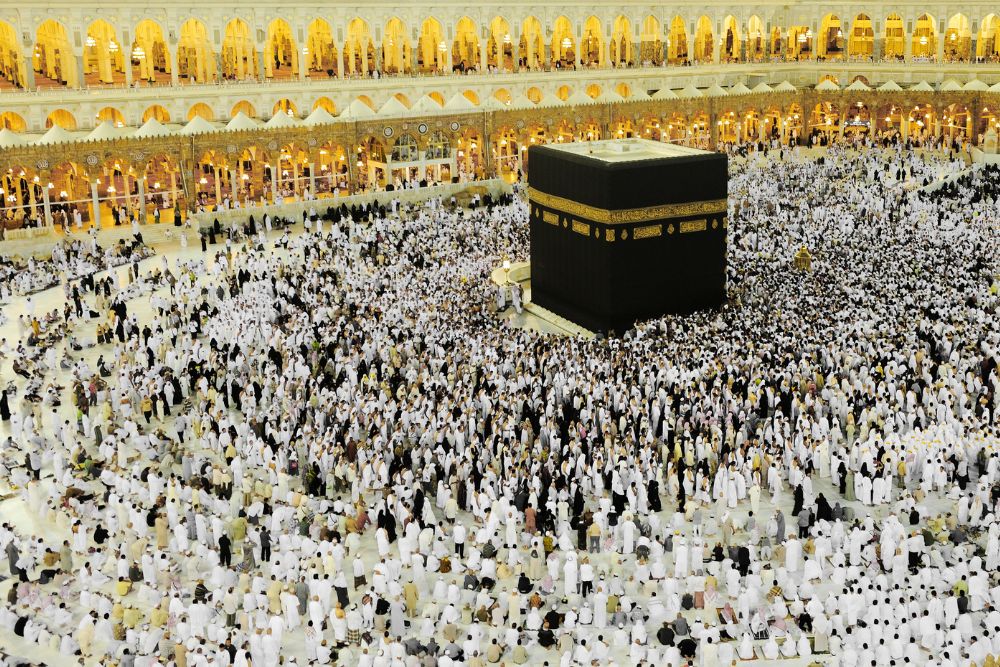
Evidently, these ‘allies’ were subject to taxes, as were the Muslims themselves, they probably had an advantage in that their tax liability consisted of fixed amounts, whereas Muslims were subject to zakat which is proportionate to resources.
Thus Islamic society is pluralistic in character, allowing harmonious cohabitation of religions.
ISLAM AND ECONOMY

Let’s now briefly discuss the economic orientation of this society. Islam is against all sorts of monopolizing of power, of money, of knowledge, of water, of food, of healthcare etc. It is also against all social or ethical compartmentalization. Its economic policies are aimed at ensuring that the wealth is not centred in the hands of a caste. Islam encourages the development of healthy economic and commercial activities that are liberal and beneficial to all. Islam urges that these activities must be undertaken with all their underlying risks. Not different from what we call a market-based economy today.
Islam opposes hoarding. It supports system of deposit and well oriented redistribution, thus striving for economic, cultural, and social development of all the layers of the society. This economic doctrine supports a system ensuring a continuous investment of financial flows in all domains that can improve the quality of life for the people.

Considering itself both a religion and a civilization, Islam gives out a call to work -at the same time- for this world as if it were eternal and for hereafter as if it was about to end. Islam has instituted social solidarity as the cement of the society. With a mode of organization without doubt ahead of its times: zakat is a tax proportionate to resources. Its purpose is expressly indicated by the hadiths: to ensure the functioning of the state, but also to enable social transfers aimed at helping the poor and subsidizing their essential needs.
ISLAM AND HUMAN RELATIONS

Now let’s take a quick look at Islam’s relational ethics and its attitude towards environment. In the eyes of Islam the man and woman have a perfect equivalence in terms of their functions. What prevails in terms of family and society is the equality, the complementarities, and the sharing of responsibilities. The Islamic laws regarding heritance constitute a true revolution for their age, when the woman was totally excluded. It was a turning point to bring woman the rights in a patriarchal society where the clans and the tribal links prevailed upon all else. As regards the social standing of the women, nothing in the Quran or in the sayings of the Prophet suggests discriminating against them, depriving them of education, or to –in any other respect- reduce them to being second class citizens. Quite to the contrary, the Prophet’s behaviour with his wives as well as with all other women he was able to come across was always filled with respect and delicate attention. In the life of the Prophet two women –his first wife Khadija and his daughter Fatima- enjoyed a distinguished status.
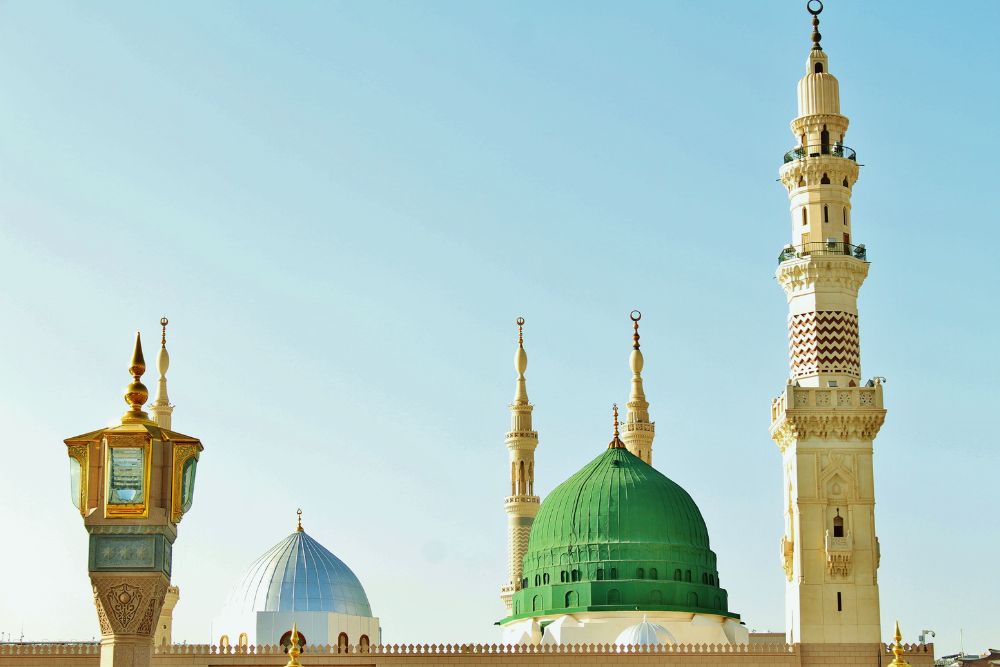
In the Quran we find teachings of extreme beauty on the union between husband and wife. For example the one that proclaims: “your women are your attire just as you are their attire”. This beautifully describes a couple’s relationship which is intimate and conventional at the same time. The social cleavage between the two sexes only took roots much later with the development of an exaggerated piety which ended in reducing all contacts with a woman into an evil source of intractable corporal temptations.
As regards the slavery, even if Islam –like the two preceding religions- does not pronounce its abolition, it does consider all maltreatment of slaves as a cardinal sin. On top of that, it proclaims freeing of slaves as one of the best manifestations of piety. That inspired Ali, the Prophet’s son-in-law and close companion, to constantly exclaim “from where do you derive the right to reduce to slavery the humans that the God has allowed to be born free?”
In respect of obligations to other fellow beings; not only does Islam put the respect of the neighbour very high but it also exhorts to have love towards him, to treat him with highest courtesy, and to afford him the help and protection. Islam enjoins looking after the elderly, to take care of the sick, and to treat the children with affection. Clearly, the parents and all the members of the family should be the object of special attention. But on top of people, Islam manifests interest towards vegetation and towards domestic animals, towards fauna and towards flora. It instructs looking after them and to avoid all acts menacing their development. For Islam, planting a tree is an act of great piety. And so is helping an animal in distress.
ISLAM AND JIHAD
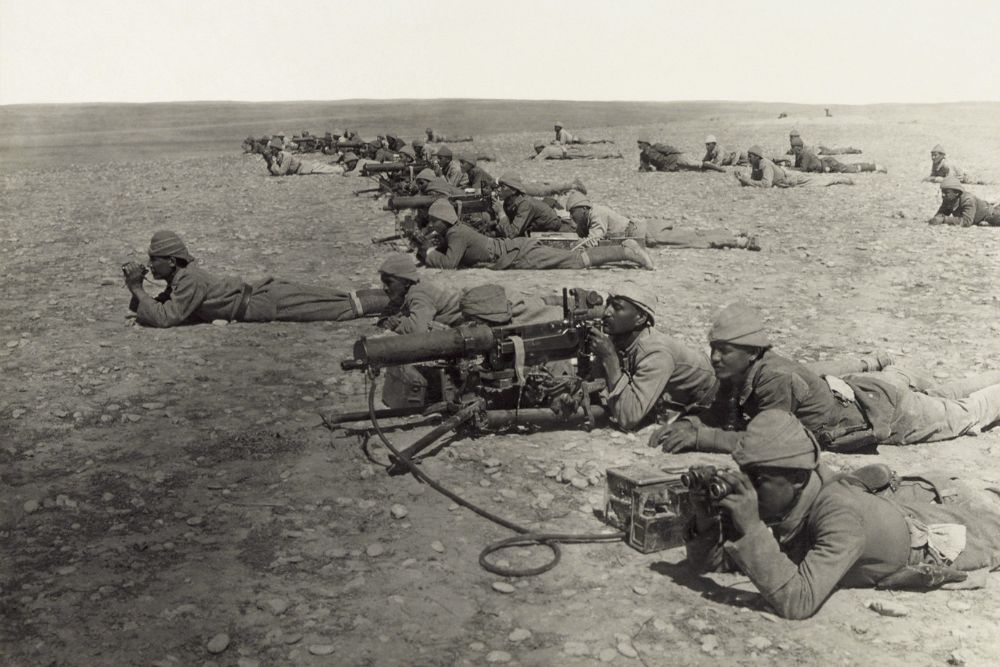
Let’s see what is jihad in verity notwithstanding the fables of fantasy that we trade in. Some magazines publish articles with provocative titles such as “Mahomet, the armed prophet”, as if he was the prophet to take up sword. They forget the armies and the wars of some of the previous prophets and even the armies that the Providence would send to help them.
Jihad signifies fight. Thus the foremost jihad consists in a fight against one’s own self, to conquer one’s passions and one’s bad instincts. Then there is Jihad against others that consists in fighting the aggressor. All the armed confrontations between Muslims and non-Muslims during the times of the Prophet show Muslims in a defensive position. Moreover, the battles conducted by the Prophet are subject to a rigorous ethic:
- to attack only the combatants;
- to spare the women, the children, and the elderly;
- to never desecrate the dead bodies of the enemies;
- to never torture the prisoners;
- to always shun the war in favour of peaceful resolution, wherever possible. “If they incline towards peace, so should ye”, says the Quran.
In addition to this, in its wars, Islam never forced its enemies to renounce their religion. It always left them the free choice. This sums up Islam’s essential approach towards Jihad and remains binding even today.
CONCLUSION
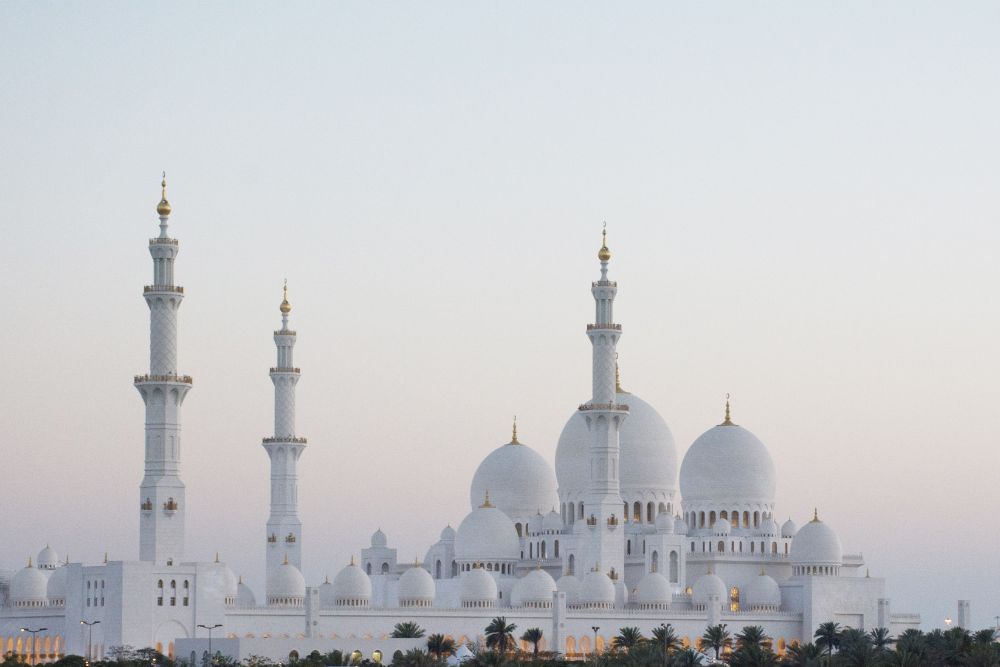
In putting accent on the role of reason; in exhorting to think critically; in introducing the concept of relative ethics; in demolishing the social, religious, and ethnic partitions; in opening the society to religious and cultural plurality; and in empowering the human to adapt and modify the religious instruction; have not the teachings of Islam –that we have discussed here- been a preparation of the way for what we call the modernity: a system that establishes a dynamic interdependence between ambition and necessity on one hand and between moral values and spiritual aspirations on the other hand? Just as the extremism on display within the fold of Muslim world today is displaced from true Islam, there is little point in attacking Islam in anachronistic fashion and without reason.

Islamist diversions –evidently well after the Prophet- have had deplorable effects, before all for the Muslim societies themselves. To conquer Islamism, which is also hostile towards the moderate Muslims, we should resort to means other than general insult or scorn or only relying on the security measures. We have to reach the roots of the evil inside the incriminated societies as such lack of education of the masses, deprivation of basic rights and necessities, and financial backing and ideological provenance of extremism.
The writer is the author of four books that can be seen at https://www.amazon.com/Asif-Zaidi/e/B07J2S7R11

